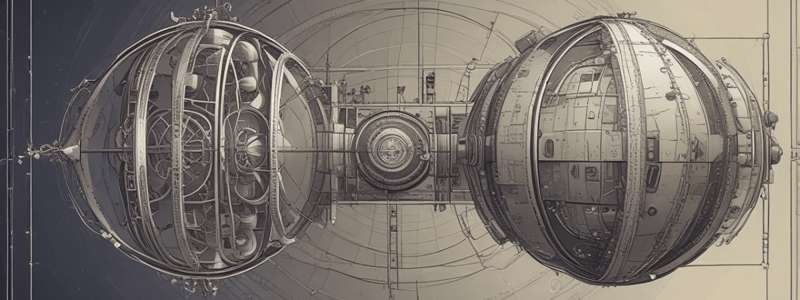Podcast
Questions and Answers
What is the main problem with having multiple units for measurement?
What is the main problem with having multiple units for measurement?
- It is only a problem in biology laboratories
- It makes conversion between units more complex and prone to errors (correct)
- It allows for more accurate measurements
- It makes it difficult to compare results
Why do scientists use the metric system?
Why do scientists use the metric system?
- Because it provides a standard set of units for measurements (correct)
- Because it is only used in the United States
- Because it is more complicated than other systems
- Because it is only used in biology
What is the standard unit of length in the metric system?
What is the standard unit of length in the metric system?
- Meter (correct)
- Yard
- Inch
- Foot
What is the advantage of using a standard set of units?
What is the advantage of using a standard set of units?
Why is it important to have accurate and understandable measurements?
Why is it important to have accurate and understandable measurements?
What is the significance of the original definition of a meter?
What is the significance of the original definition of a meter?
Why do we use the liter as the standard unit of volume?
Why do we use the liter as the standard unit of volume?
What is the difference between mass and weight?
What is the difference between mass and weight?
What is the equation to convert from Fahrenheit to Celsius?
What is the equation to convert from Fahrenheit to Celsius?
Why is the Celsius scale named as such?
Why is the Celsius scale named as such?
Flashcards are hidden until you start studying
Study Notes
Importance of Standard Units
- Measuring objects in various ways can lead to confusion and inaccurate conversions between units.
- Using a standard set of units, such as the metric system, ensures accurate and understandable measurements.
Types of Measurement Units
- Length: measured in meters (m), with 1 meter being approximately 3.28 feet.
- Area: measured in meters squared (m^2), which is the squared length.
- Volume: measured in liters (L), with 1 liter being approximately 33.81 ounces or 4 cups.
- Mass: measured in kilograms (kg), with 1 kilogram being the mass of an object, not its weight.
- Weight: the force due to gravity, not the same as mass.
- Temperature: measured in degrees Celsius (°C), with conversion to/from Fahrenheit using the equations: °C = (°F - 32) x 5/9 and °F = °C x 9/5 + 32.
Key Facts about Metric System
- The metric system is used globally for measurements.
- Each unit has a specific use for each type of measurement.
- The meter was originally intended to represent one ten-millionth of the distance on Earth from the equator to the North Pole.
- The Celsius scale was proposed by Swedish scientist Anders Celsius and has 0°C as the freezing point and 100°C as the boiling point of water.
Studying That Suits You
Use AI to generate personalized quizzes and flashcards to suit your learning preferences.




